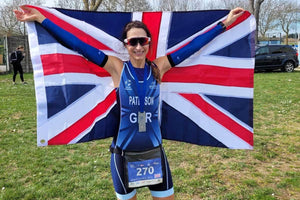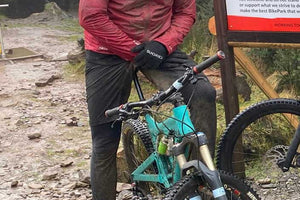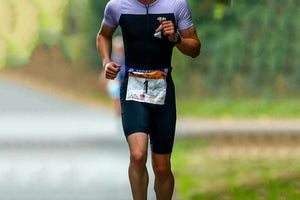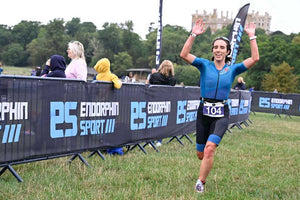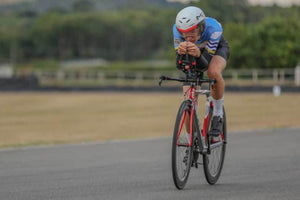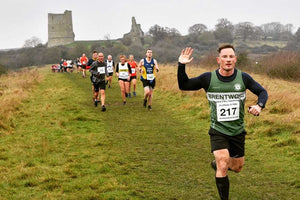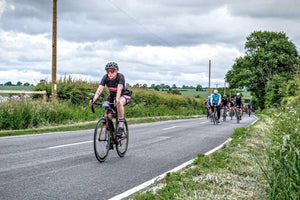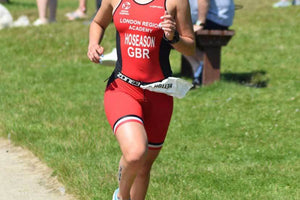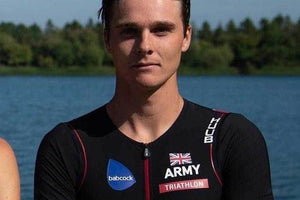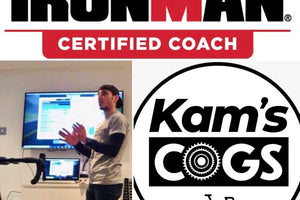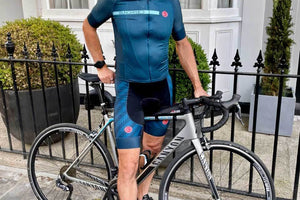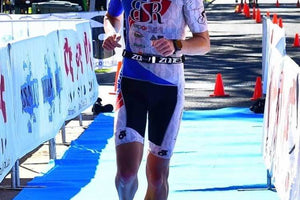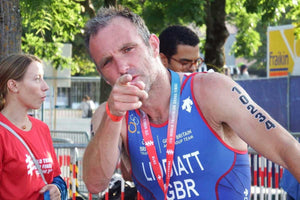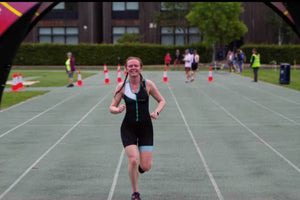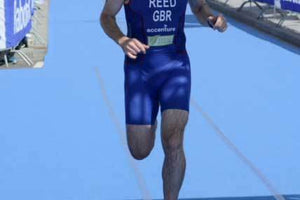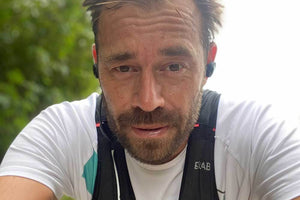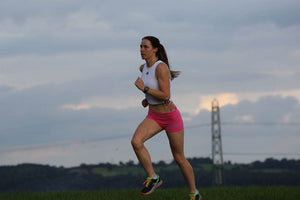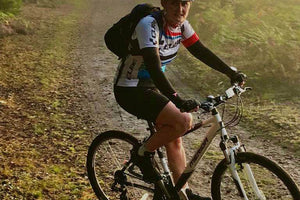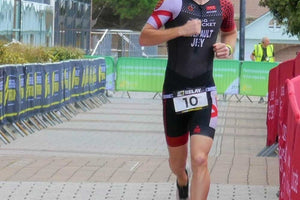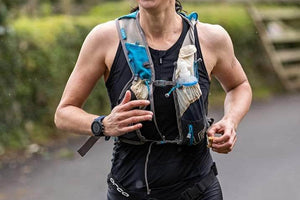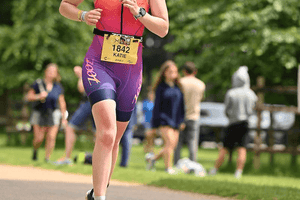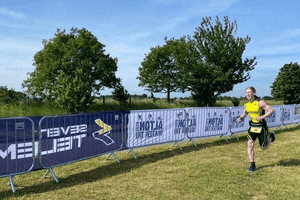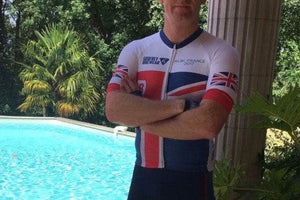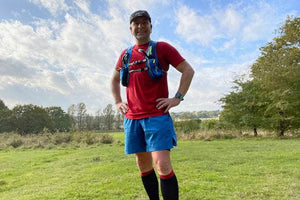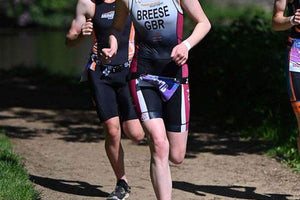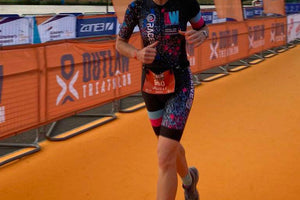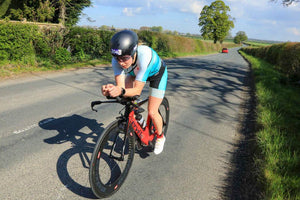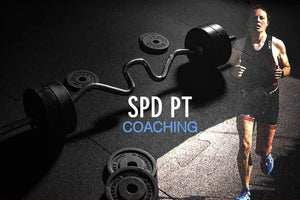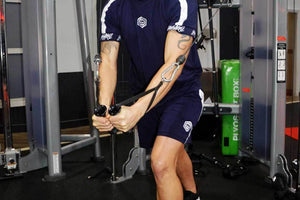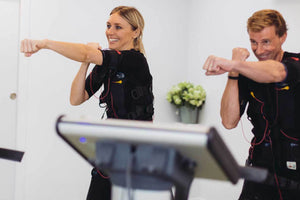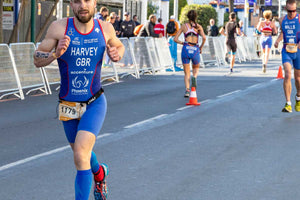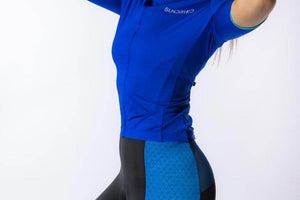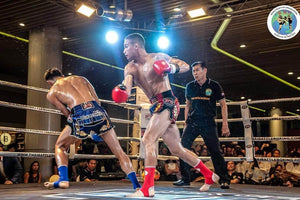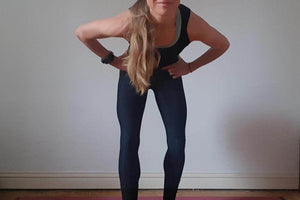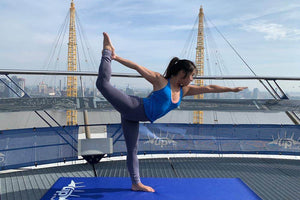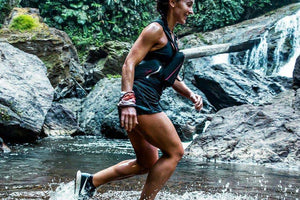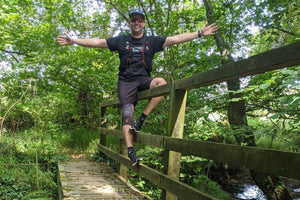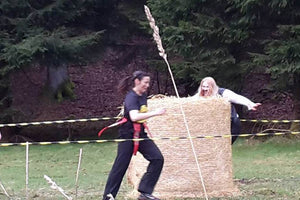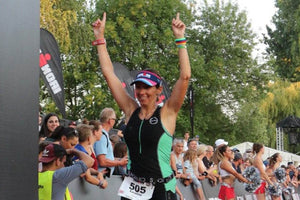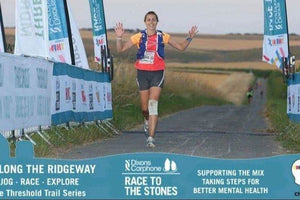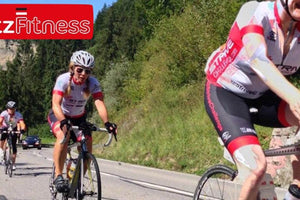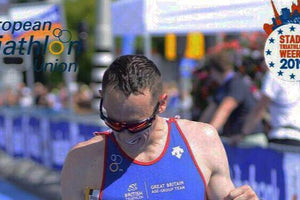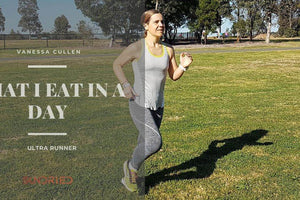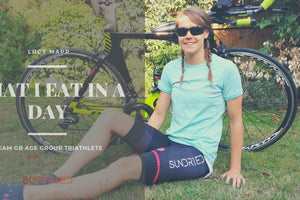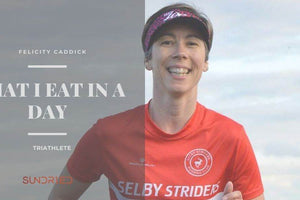
Ken Byrne is a Sundried ambassador who suffers from auto immune conditions including arthritis and hemochromatosis. He shares with us an insight into training for a tough Ironman triathlon while managing these health conditions.
There are various challenges I face on a daily basis when I train or race. I have rheumatoid arthritis and another autoimmune disease called hemochromatosis. There are hundreds of forms of autoimmune disease and they affect millions of people around the world.
A background on my autoimmune diseases
In short, an autoimmune disease results in your body attacking itself in some manner, usually resulting in chronic pain, chronic fatigue, hair loss, bad skin, mood swings, or even depression.
Rheumatoid arthritis and more specifically Inflammatory arthritis, which is what I have, is caused by my immune system constantly thinking my body is under attack from a foreign body, so my body does what we are programmed to do and tries to get rid of it. It does so by attacking what it thinks is the foreign invader, except it’s actually my immune system which is making me sick.
Hemochromatosis is where my body cannot get rid of iron from my blood in the normal manner, which can lead to a build-up of iron in my major organs resulting in, well, not good news. Symptoms of hemochromatosis include chronic fatigue, joint pain, and other arthritic symptoms. It is quite a hard condition to pinpoint but it is hereditary so it does tend to run in the family. If a family member is diagnosed with hemochromatosis, it is often worth having all family members tested too.
The combination of both of these diseases makes it tough for me to have a normal quality of life. I am a normal father of three and do my best to hold down a job, but I also try my hand at being a triathlete too.
I am on medication for my arthritis at the moment, which affects my immune system and targets the protein that is active when my arthritis is triggered and the idea is to suppress this protein so that my body stops attacking itself. I inject this on a daily basis.
Autoimmune diseases and triathlon
I was always sporty growing up, but when I was hit with these diseases I was unable to function on a daily basis. I was depressed, I gained a lot of weight, I was not exercising and my life was very unhealthy. It was a very hard time for me. Coming to terms with this lifelong debilitating disease was hard to accept.
Seven years ago, I made it back into the pool and at the time could not swim two lengths. I didn't know what triathlon was at this point but I did notice that exercise was helping with a lot of my symptoms. A friend of mine mentioned he was doing a triathlon and this got me interested to know more about what this was. I found out it was a swim, bike and run race.
My initial thought was, "That’s mad!" I found out about the infamous Ironman distance, and wondered how someone could put themselves through that in one day. But then I thought, "What if I could do one?" so I signed up for a sprint triathlon. Suddenly, I had a goal, and overnight the gentle swim and slow spin on the bike in the gym were replaced with goals, improvements, times and getting better and fitter.
In 2014, I did my first ever sprint triathlon and lived to tell the tale. This year, I am starting my sixth year in the triathlon world. In that time, I have completed several sprint distances, a few standard distances, and one Ironman 70.3 distance as well as running a marathon.
Exercise helps my autoimmune conditions
My main drive and why I do this is to try to promote exercise as a tool in helping people with autoimmune diseases such a mine and other such diseases. Exercise eases the pain and also helps the mind and generally is longer lasting than the drugs they give you.
Exercise is the last thing you want to do when tired and sore, and there are days I absolutely dread getting out of bed and into the pool or to the gym or onto a bike. But afterwards I always feel better.
“If I can do it, so can you”
I was close to 20 stone (280lbs/127kg) when I first started. It used to take me 20 minutes to loosen up in the morning and I was unhealthy in so many ways. Now, I try to lead by being an example to people.
In 2019, I got a full hip replacement so could not race, but I got back out on my bike, did one open water swim race, and I got back into running towards the end of the year.
I have set a goal for 2020 to revisit an Ironman 70.3, this time in Portugal. I want to try to finish with the pack and not be the person that just gets over the line before the time limit. My last attempt at 70.3 distance, I finished in 8.23, 7 minutes before the cut-off time.
For most of my races I have been last or close to last where the finish line is being packed away and most athletes are either on their way home or some even home having a long soak.
I want 2020 to be different.



